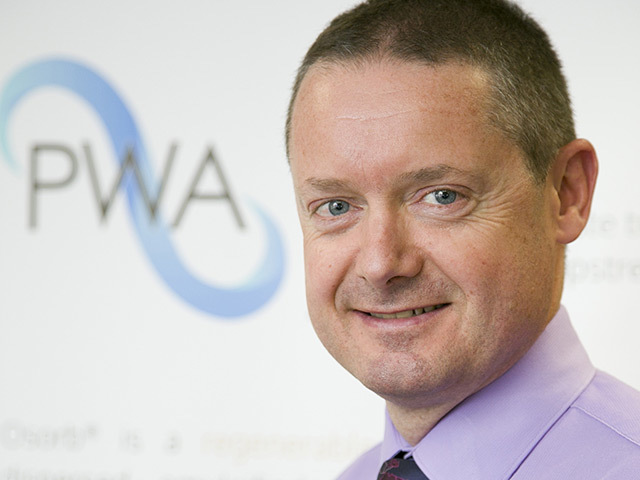
A year ago, Neil Poxon departed the ITF in Aberdeen for the US to drive forward a small oilfield service firm specialising in cleaning produced water.
Energy has been told that the transformation of Produced Water Absorbents (PWA), from a group of enthusiastic engineers and researchers at its HQ in Wooster, Ohio, to an international player has been faster than expected.
This includes setting up a European satellite in Aberdeen.
“It’s been a whirlwind of activity, very much beyond my expectations.” said Poxon, just eight months on from joining the firm.
“I want to take the company beyond the confines of North America and focus our attention to become a credible solutions provider to the global produced water arena.
“We want to be seen as a globally recognised leader in this field. Our new division in Aberdeen is cementing our footprint across Europe and plans are in place to grow further afield and that journey is quickly gathering pace.”
Poxon joined the company in January this year; his remit . . . to build the business and commercialise its Osorb technology for the treatment of produced water. Venture capital funding was secured from Energy Ventures of Norway and Harris and Harris Group, a US VC player.
Though estimates of produced water volumes vary, the global quantity is likely to increase into the hundreds of billions of barrels per year, presenting an ever-growing challenge in how to manage and potentially reduce harmful environmental effects.
PWA wants a slice of that market and Poxon believes that the form’s Osorb technology is what the market needs.
Osorb is an organically modified silica, which can repel water and removes free, dispersed, emulsified and soluble hydrocarbons and oilfield chemicals. It is claimed to have “unmatched” capability and that recovery for re-use is 100%.
A recent offshore trial in Indonesia produced results with an average 99% oil-in-water (OIW) reduction from 618 ppm (parts per million) to 7.4 ppm. New legislation to reduce OIW is currently a global average of 25ppm.
PWA says its technology can be applied on- and offshore, and in other market areas, such as well completion and stimulation flowbacks, EOR (enhanced oil recovery) applications, deluge water, oil spill recovery, air emissions control and natural gas conditioning.
Driving the market is the introduction of stringent regulations to manage the Environmental Impact Factor (EIF) pioneered in the Norwegian sector of the North Sea, meaning that operators will have to treat and measure for soluble contaminants such as BTEX, phenols and aromatic hydrocarbons.
PWA is tiny. It currently has three people in its Aberdeen division, and 12 staff at Wooster.
However, Poxon hopes that the bullish forecast for water treatment products and services will rub off favourably on PWA and that the company will grow strongly.
Poxon has not forgotten ITF roots and the benefits it can bring to young technology companies like PWA as the firm will join five other developers exhibiting with the Facilitator on its “Technology Street” at Offshore Europe (Stand 3B175).
Recommended for you
